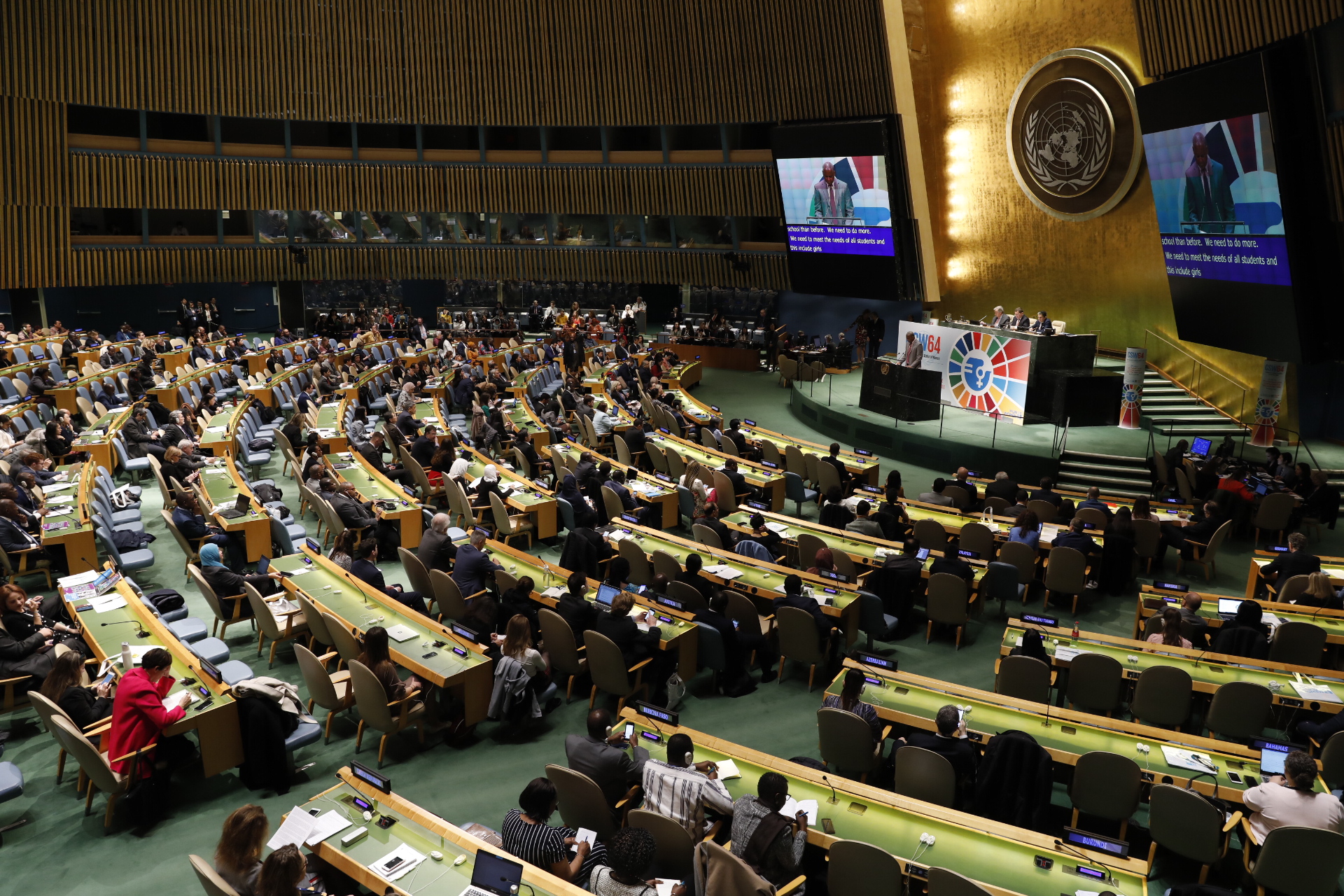Member States agree to fully implement the Beijing Declaration on gender equality, addressing gaps that hold women back
The Political Declaration adopted today is the outcome of the 64th Commission on the Status of Women, taking stock of women’s rights on the 25th anniversary of the Beijing Declaration and Platform for ActionDate:
Media contact: media.team[at]unwomen.org

9 March 2020, New York—In a Political Declaration adopted today by Member States commemorating the 25th anniversary of the Fourth World Conference on Women, held in Beijing in 1995, leaders pledged to ramp up efforts to fully implement the Beijing Declaration and Platform for Action, still considered the most visionary blueprint on women’s rights.
The Political Declaration is the main outcome of the 64th session of the Commission on the Status of Women, the largest annual gathering on gender equality and the empowerment of women at the UN. This year the Commission decided to scale back the session to a one-day procedural meeting with delegations and civil society representatives based in New York, in light of the COVID-19 situation.
This year’s session focused entirely on the review and appraisal of the implementation of the Beijing Declaration and Platform for Action. The review took stock of the status of women, including in-depth assessment of current challenges that affect the implementation of the Platform for Action and the achievement of gender equality and the empowerment of women.

UN Women Executive Director, Phumzile Mlambo-Ngcuka, said: “25 years after Beijing, we all recognize that progress on women’s rights has not gone far or fast enough. It’s 2020, yet no country has achieved gender equality and women continue to be squeezed into just one quarter of the space at the tables of power. Today, Member States have reaffirmed the Beijing Platform for Action, the progress and the gaps. Women and girls will hold them accountable as we work together for true and lasting equality and the full enjoyment of our human rights.”
In the Political Declaration, Member States welcomed the progress made towards the full, effective and accelerated implementation of the Beijing Declaration and Platform for Action, but expressed concern that overall, progress has not been fast or deep enough. In some areas progress has been uneven, and that structural barriers, discriminatory practices and the feminization of poverty persist.
As leaders reaffirm their political will for action, they also recognize that new challenges have emerged that require concerted and intensified efforts, including in regard to:
- Realizing the right to education for all women and girls, with attention to areas where they are underrepresented such as STEM;
- Ensuring full, equal and meaningful participation, representation and leadership of women at all levels and in all spheres of society;
- Ensuring women´s economic empowerment, for instance, access to decent work, equal pay, provision of social security and access to finance;
- Tackling the disproportionate share of unpaid care and domestic work of women and girls;
- Addressing the disproportionate effect of climate change and natural disasters on women and girls;
- Ending all forms of violence and harmful practices against all women and girls;
- Protecting women and girls in armed conflict and ensuring women’s participation in peace processes and mediation;
- Realizing the right to health for women and girls, with emphasis on universal health coverage; and
- Addressing hunger and malnutrition among women and girls.
Leaders also identified specific means for tackling these gaps and challenges. Some of these include eliminating all discriminatory laws; breaking down structural barriers, discriminatory social norms and gender stereotypes including in the media; matching commitments to gender equality with adequate financing; strengthening institutions to promote gender equality; harnessing the potential of technology and innovation to improve women’s and girls’ lives; regularly collecting, analyzing and using gender statistics; and strengthening international cooperation to implement commitments to gender equality.
The Declaration also reaffirms that gender equality and the empowerment of all women and girls will make a crucial contribution to progress across all the Sustainable Development Goals, as we begin the UN Decade of Action.
For the 64th session, the UN Secretary-General presented a comprehensive report (E/CN.6/2020/3) that is based on an extensive, participatory stock-taking exercise on women’s rights, combined with global data and analysis. 171 Governments submitted national reports, and hundreds of civil society activists contributed to the national and regional reviews. Building on the UN Secretary-General’s report, UN Women published the Women’s rights in Review 25 Years After Beijing Report, examining progress and obstacles in women’s rights since the adoption of the Beijing Declaration and Platform for Action in 1995.
Related Links: